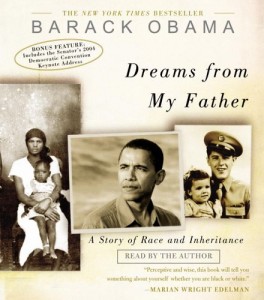Yesterday, in a ceremony awarding prizes to a successful US Navy football team at the White House, President Obama greeted a fellow Hawaiian with a “hang loose” sign (aka the Shaka gesture), which was of course returned.
On the day before his Inauguration in January, an amateur video showed then-President-elect Barack Obama with his wife, greeting VIP guests at a concert held in his honour on the Mall, in Washington DC; many of these guests were black Americans, and Young Bazza spoke to them in a different accent, different tone of voice, and with different body language to his normal public persona. As a state congressman in Illinois, he once remarked to an aide that the folks he met upstate were just like his Kansan relatives. As is well-known, he was a big-city urban politician from Chicago, of a type that can be found throughout the North-East and in some cities elsewhere – think The Wire (Baltimore), or think larger-than-life city politicians from TR, Fiorello La Guardia, Richard Daley, John Lindsay, Ed Koch, Tip O’Neill, through to Rudy Giuliani and Cory Booker. He was also Editor of the Harvard Law Review, putting him into the intellectual A-league alongside people like Adlai Stevenson, Henry Kissenger, Sam Nunn and both Clintons.
Perhaps the key reason for Obama’s sudden rise to national prominence in the US is his ability to identify with people from all over the map, to make people feel that he is “one of us” in lots of different communities. In this he takes after “Ol’ 57 Varieties” himself, Teddy Roosevelt. Obama, of course, takes this to a new global level, with his family connections to Kenya and to Indonesia.
Two thoughts come to mind. The first is that several successful politicians have had backgrounds or career experiences that enable them to connect with many different communities in their home countries: Harold Wilson for example, who traveled the length and breadth of Britain in his 20s as a researcher for William Beveridge and for the Beveridge Commision; Eddison Zvobgo, another Harvard Law School graduate and Minister for Local Government in Robert Mugabe’s newly-independent Zimbabwe, who used the role to build a nationwide constituency; and Bob Hawke, Australian PM, who spent the main part of his career as first a researcher with and then President of the Australian Council of Trades Unions (the ACTU), a position which enabled him to travel widely, to meet people across the social spectrum, and to make connections internationally (eg, he negotiated with the USSR to allow greater Jewish emigration to Israel).
My second thought is that this provides us with another way to classify the various US Presidents. Some Presidents, like Obama, are post-industrial nomads, either not from one specific place or from several: TR, Hoover, Eisenhower, Nixon, Reagan and Bush 41. Other Presidents are firmly perceived as being from one specific place: Lincoln, Taft, Wilson, Harding, Coolidge, FDR, Truman, JFK, LBJ, Carter, Clinton and Bush 43. It is interesting that the only nomads before Obama were Republicans.
